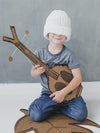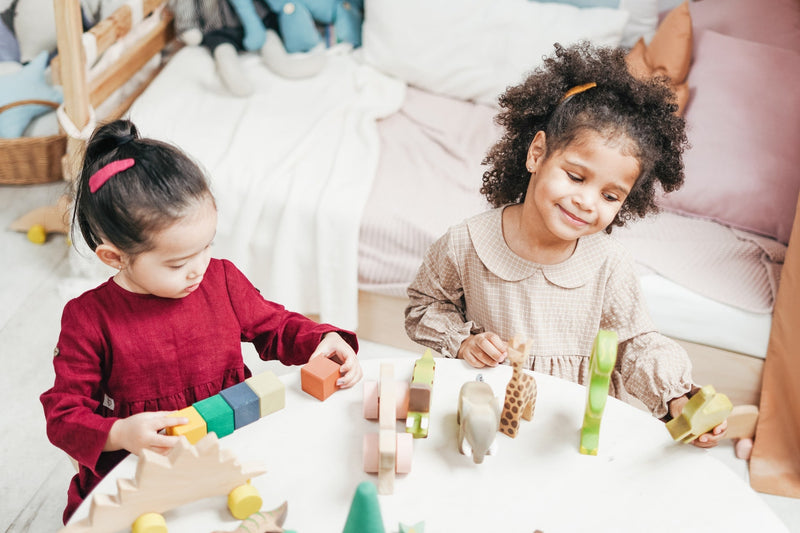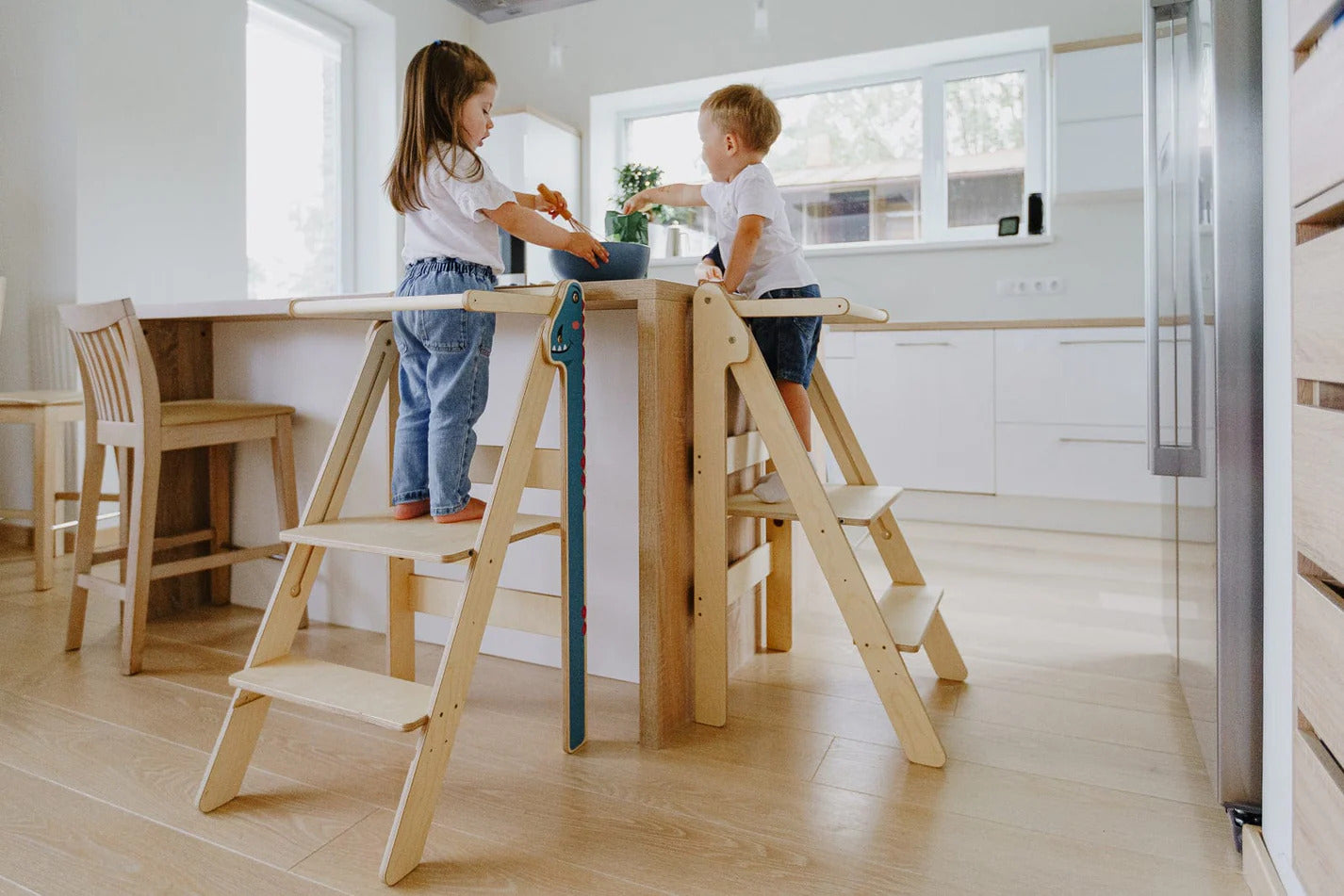Montessori education, developed by Maria Montessori at the beginning of the 20th century, is a method that emphasizes autonomy, freedom of choice, and practical learning. Among the many tools and materials designed to support this approach, the Montessori tower, also called observation tower, is distinguished by its effectiveness and versatility. This article explores in detail what the Montessori tower is, why it is essential in the development of the child, and how to integrate it into your daily life.
What is the Montessori tower?
There Montessori Tour is a wooden structure, generally equipped with steps or a scale, which allows young children to reach higher surfaces in a secure manner. Imagined to allow toddlers to participate in daily activities up to adults, this tower is an educational tool that promotes autonomy and learning through experience.
It is generally made from natural wood, which not only ensures its sustainability, but also respects the principles of simplicity and naturalness dear to the Montessori approach. The Montessori tower is adjustable in height, which allows him to grow with the child, adapting to his needs as he develops his motor skills and his self -confidence.
The benefits of the Montessori Tower
1. Promote autonomy
One of the fundamental principles of the Montessori method is to encourage the independence of the child from an early age. Using the Montessori tower, the child can actively participate in daily tasks such as cooking, washing dishes or watering plants. This active participation strengthens its feeling of competence and autonomy. Rather than constantly depending on adults to reach high objects or surfaces, the child can climb himself at the desired height, which encourages him to explore his environment independently.
2. Develop motor skills
Climb the steps of the Montessori Tower, then rise to the right height to observe or participate in an activity, requires a certain coordination. These movements contribute to developing the child's motor skills, in particular its global motor skills. The child learns to master his body, find his balance, and use his muscles in a coordinated manner. This physical mastery is essential for its global development, because it constitutes the basis of many other learnings.
3. Stimulate curiosity and learning
Children are naturally curious and eager to imitate adults. The Montessori Tower offers them the opportunity to observe closely and participate in the activities of adults, which stimulates their curiosity and their desire to learn. By participating in the preparation of meals, for example, the child is exposed to new concepts such as sorting, mixing, measurement, and even more complex notions such as food chemistry or safety in cooking.
4. Strengthen self -confidence
Each new skill acquired strengthens the child's self -confidence. When he uses the Montessori tower to accomplish a task that he could not have done otherwise, he feels a deep feeling of accomplishment. This self -confidence is crucial for its emotional and social development. A child who believes in his abilities is more likely to approach new challenges with confidence, which is an asset for his educational career and his future life.
How to integrate the Montessori tower into everyday life?
The Montessori tower can be used in almost all rooms in the house, according to the needs and interests of the child.
1. In the kitchen
The kitchen is probably where the Montessori tower is the most used. It allows the child to participate in the preparation of meals, an activity rich in learning. It can help wash the vegetables, mix the ingredients, or even observe the physical changes in food when cooking. By involving the child in these tasks, they are taught not only practical skills, but also healthy eating habits and a positive relationship with food.
2. In the bathroom
In the bathroom, the Montessori tower allows the child to brush their teeth, wash their hands or face, or even participate in the bath of the youngest member of the family. These are important moments of learning to develop your autonomy in personal care.
3. In the living room or the bedroom
The Montessori tower can also be used in other parts to help the child access objects or activities. For example, in the living room, he can use it to reach books on a high shelf, or to participate in creative activities on a high table. In the room, it can facilitate access to toys or allow the child to help put his things to store.
Choose the right Montessori tower
When you choose a Montessori tower, it is important to take into account several criteria to ensure your child's safety and comfort.
- Security : Make sure the tower is stable and equipped with side protections to avoid falls. Also check that the materials used are non -toxic and safe for children.
- Adjustability : Opt for a tower that can be adjusted in height. This allows it to be adapted to the age and size of the child, thus extending its use.
- Ease of use : The tower should be easy to move and store. Some models are foldable, which is an asset for small spaces.
- Design and aesthetics : Choose a tower whose design fits well with your interior. There are modern, rustic or minimalist models to suit all tastes.
The observation tower, in conclusion
The Montessori tower is much more than a simple piece of furniture: it is a powerful learning tool that supports the child in its global development. By offering her the possibility of participating in daily activities with an adult, she promotes her autonomy, develops her motor skills, stimulates her curiosity and strengthens her self -confidence. Integrating the Montessori tower into your home is to offer your child a unique chance to grow while learning, while respecting the principles of Montessori education.
By investing in a Montessori tower, you do not just make your child's life easier, but you also create moments of precious sharing and learning that will have a lasting impact on its development.



